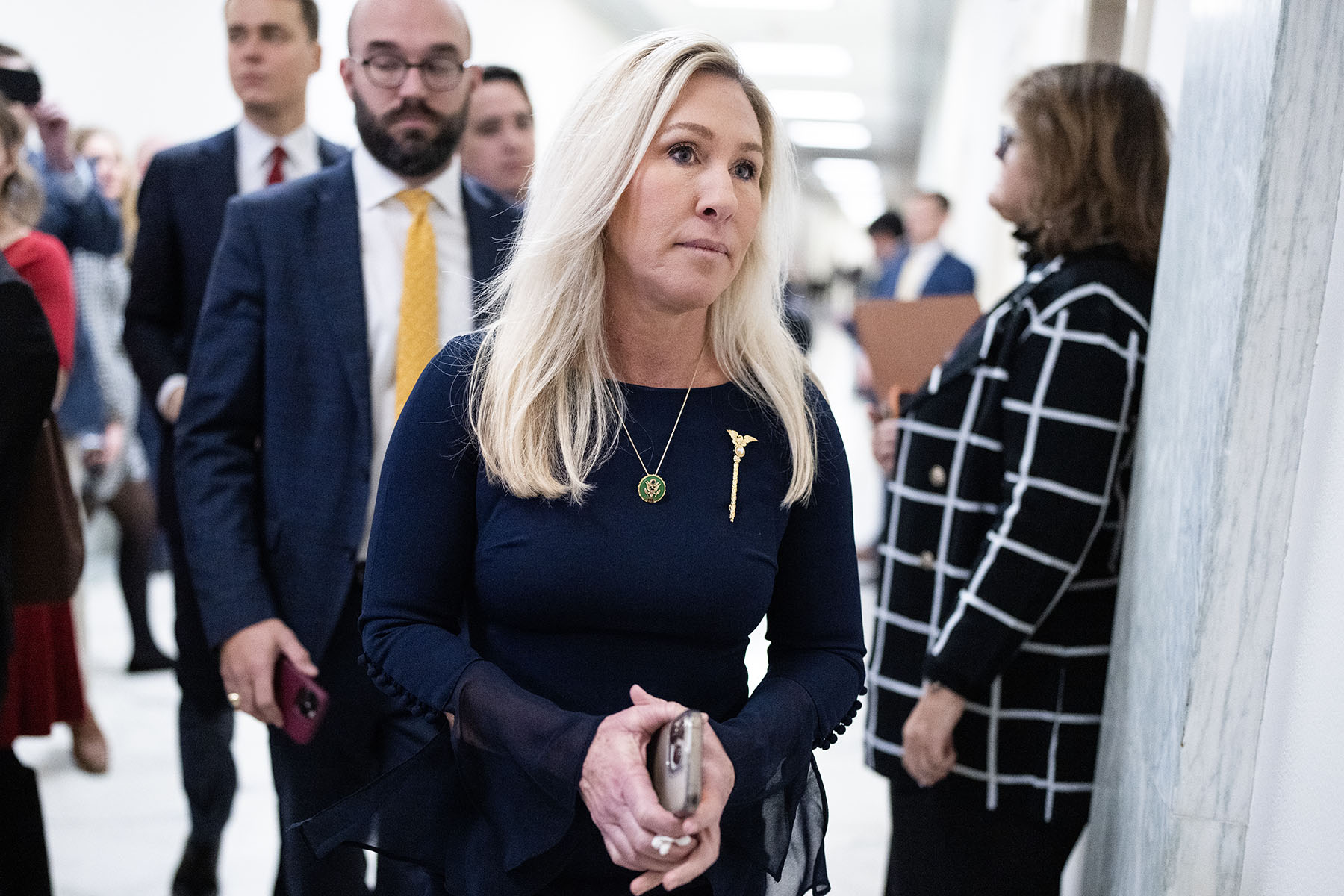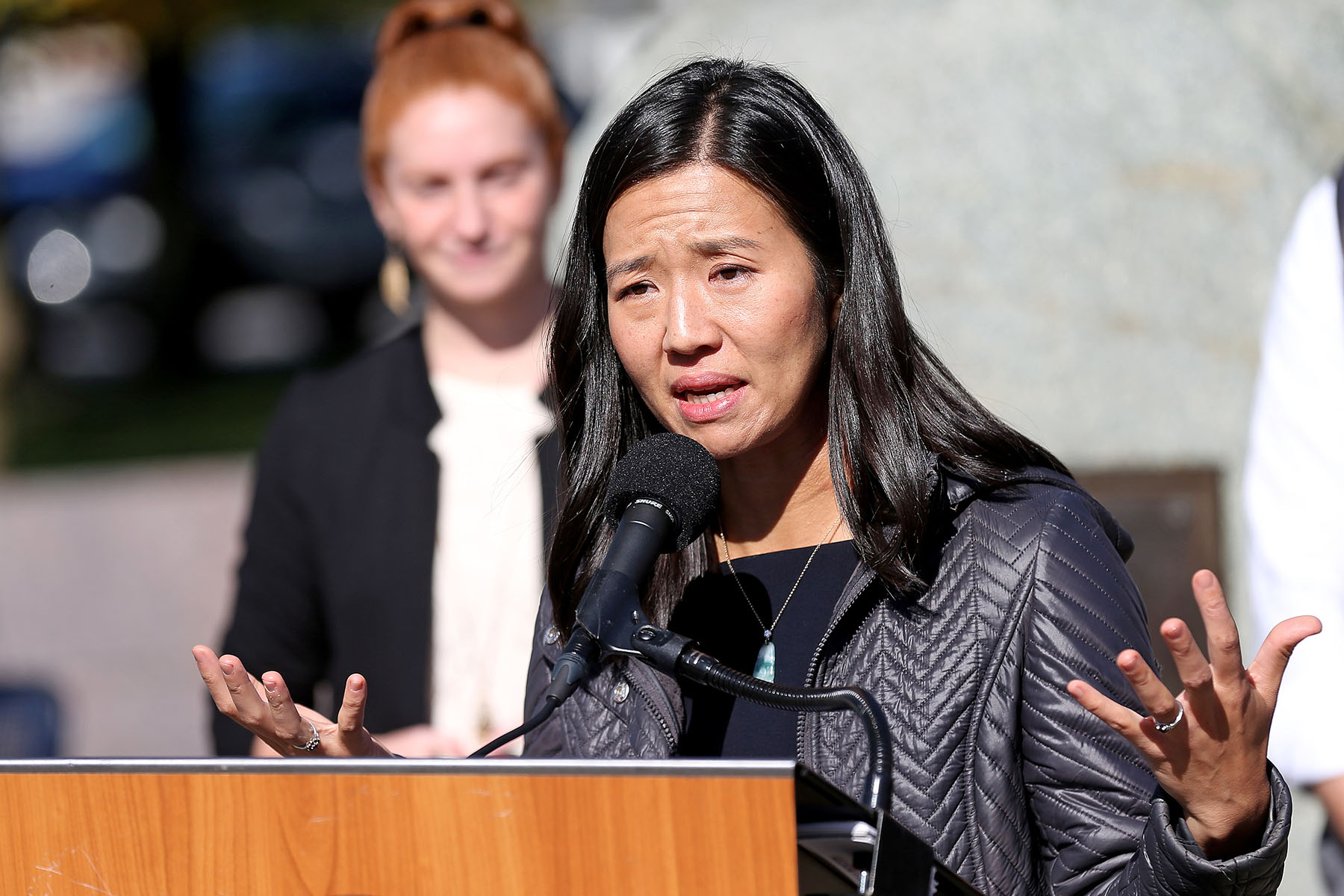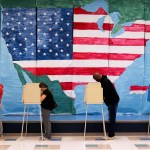2024 began with a wave of threats and swatting incidents directed at high-profile public officials — many of them women — and government institutions. The spate of threats of violence comes as the United States marks the 3rd anniversary of the January 6, 2021, insurrection at the Capitol and enters a critical presidential election year that will again test the resilience of American democracy.
In the past few days, Maine Secretary of State Shenna Bellows said she was a victim of a “swatting” — a form of harassment where a caller falsely reports a violent crime taking place at a person’s home to send a heavily armed tactical police unit to the residence — at her home. Members of the Colorado Supreme Court have faced threats in the wake of decisions on former President Donald Trump’s eligibility for the ballot. On Wednesday and Thursday, emailed bomb threats spurred state capitols and other government offices to evacuate.
Both the Colorado Supreme Court and Bellows, Maine’s chief election official, have ruled Trump is ineligible to appear on the 2024 primary ballots in those states due to a 14th Amendment clause barring those who have “engaged in insurrection” from holding office. Trump has appealed both decisions; the U.S. Supreme Court is likely to settle the question of his eligibility for the ballot in those states.
President Joe Biden is kicking off his January campaign schedule with a Friday afternoon speech near Valley Forge, Pennsylvania, a pivotal site in the American Revolution, marking the anniversary of the January 6 insurrection and emphasizing threats to democracy.
In a Tuesday call with reporters, Biden campaign aides described the 2024 contest as an existential flashpoint that will “determine the future of American democracy and every American’s fundamental freedoms.” They also warned of the consequences of former President Donald Trump’s often-extreme plans for a potential second term, pointing to Trump’s own comments that he’s promised to be a dictator “on day one.”
-
More from The 19th
- ‘Where is Nancy?’: How threats against women in power are tied to threats against democracy
- Jury rules Rudy Giuliani must pay $148 million for defaming Georgia election workers
- How federal lawmakers achieved a ‘watershed’ year of progress fighting gender-based violence and sexual harassment
Threats of violence, particularly threats against women officials, have risen since 2020.
Lies that the 2020 election was stolen, spread by Trump and his allies, fueled a surge in harassment and threats toward the woman-dominated local election workforce, much of which has experienced an increasingly hostile environment and rising turnover after the 2020 election. Many particularly vicious attacks on political leaders and election officials have targeted women of color.
“It does indicate to me an erosion of institutions and principles, and the degree to which some are willing to dabble or outright engage in political violence against their fellow Americans,” David Becker, founder and executive director of the nonpartisan Center for Election Innovation & Research, said on a Thursday call with reporters.
Bellows, a Democrat, said of the swatting attempt against her, “In this case it was without incident. But make no mistake, just because it was a fake call, it was a swatting call, doesn’t make it any less dangerous,” Though the swatting took place while Bellow was not home, she told SiriusXM the call was “In fact…very dangerous.”
In a Thursday interview with SiriusXM’s “The Briefing” with Steve Scully, Bellows said she — along with those close to her and her staff — have been receiving “abusive, aggressive and threatening communications” in response to her decision to remove Trump from the state’s ballot.
Law enforcement officials around the country said they were investigating swatting incidents targeting other public officials from both political parties, including California Lt. Gov. Eleni Kounalakis, Rep. Marjorie Taylor Greene of Georgia and Boston Mayor Michelle Wu over the holidays.

Becker cautioned against jumping to conclusions about the sources and motivations behind all the incidents, including the emailed bomb threats that targeted multiple state capitols and offices and forced at least half a dozen to evacuate on Wednesday morning. He said, however, that the threats were “deeply disturbing.”
The FBI said in a Wednesday statement that it did not have “information to indicate a specific and credible threat” to state capitols but takes such hoax threats “very seriously.” A suspect is also accused of opening fire inside the Colorado Supreme Court building on Tuesday morning, though law enforcement said they “confirmed a high probability” that it was not related to the threats justices have received in the wake of the court’s decision on Trump’s eligibility for the ballot.
“It’s hard to take what happened in the last couple of days in a vacuum,” Becker said. “It is part and parcel of the overall attack on institutions and our fellow Americans who might disagree with us politically. And I’m deeply concerned about it.”
The rash of threats comes as Trump has also deployed incendiary rhetoric on the campaign trail in previewing his plans to consolidate power in the federal government, use the power of the state to punish his enemies and aggressively limit immigration. In a Veterans Day speech in November, Trump vowed to “root out” political opponents who “live like vermin” and “lie and steal and cheat on elections.” In December, he said that migrants were “poisoning the blood” of the country.
“Americans need our political leaders to lower the temperature, rebut dangerous disinformation, and make clear that violence has no place in our state capitols, election offices and polling locations,” said Daniel Griffith, senior director of policy for the Secure Democracy Foundation, a nonpartisan organization that advocates for fair and secure elections.
Trump currently faces 91 total criminal charges across four ongoing cases, including several federal and state charges for attempting to overturn the 2020 election and obstruct the counting of electoral votes in Congress. As Republicans prepare to vote in high-stakes primary contests in Iowa and New Hampshire, Trump will spend much of January embroiled in separate legal matters taking place in New York: a civil fraud case against him and his businesses and a civil trial to determine damages he must pay to writer and advice columnist E. Jean Carroll after a judge found him liable for defamation. A jury verdict in a related case last year found him liable for sexually assaulting her in the 1990s and subsequently defaming her.
The court system is grappling not only with the charges against Trump and challenges to his eligibility but also with the human ramifications of the threats against election officials spurred by the lies and conspiracy theories he propagated. A Washington, D.C., jury in December ordered former Trump attorney Rudy Giuliani to pay $148 million in damages for defaming two former Georgia election workers, both Black women, who said the resulting threats and harassment jeopardized their safety and upended their lives.

While women are underrepresented across local government as a whole, a 2020 survey from Reed College and the Democracy Fund found over 80 percent of local election officials are women. Becker and his organization launched the Election Official Legal Defense Network to provide legal support and resources to election officials facing intimidation and harassment. He said the election workforce has seen “unprecedented attrition” since 2020, driven in large part by abuse and threats, and the Network is still receiving as many requests for assistance now as it did when it launched.
At the same time, Becker said local election officials remain strong and resilient and have continued to run smooth, successful elections in 2021, the 2022 midterms and 2023. Many departures of officials, who skew older, especially in smaller jurisdictions, are due to regular retirements, he said. And departing election officials in significant counties in the battleground states of Arizona and Nevada are being replaced by experienced professionals.
“I think it’s important to note that the threats and harassment have taken its toll and it’s led to attrition and that put strains on the system,” Becker said. “But incredibly, every time those strains hit, election officials deliver.”







